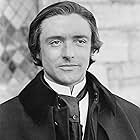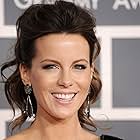Judy Davis carries this entire movie with one of her many insatiable, unforgettable performances, portraying a real-life WWII resistance heroine, Mary Linden, an English Countess who worked for the French Red Cross in Occupied France and helped allies who had been shot down to escape to unoccupied territory. Her actions are made increasingly difficult because of her high profile and her daughter's tryst with a German officer. That complication is what makes her story so universally relevant and sincere. She is unapologetic, impetuous, and completely uncomplicated, so much so that she would never think of hiding those parts of herself.
The way she physically expresses herself is almost masculine, the way she gestures and leans. From the cream of the world's prehistoric dissolution appears this woman's concrete natural liveliness. Selfhood is principal and Judy Davis's portrayal of this character is most involved with its concentration. She is a realist, barely considering sentiment or religious or unworldly matters, which, like all else in her bare-bones view of life, are merely concerns of expediency. She simply is who she is:
Look at the early scene when she sees the English Major played by Sam Neill, wounded and wandering in a Paris under enemy control, she does not pause for a second to endanger her life to protect him from suspicious Germans. Thus is the start of her aid to the British and American soldiers in France.
The way Davis plays this woman is beyond what words can approximate. She is magnetic, relatable, funny, touching and sexy, all in her simplicity in this buried treasure that reveals in essence what any story of an individual WWII resistance fighter reveals, about being your utmost and paramount self, which is a job that could not be more perfectly suited for Mary Linden.




























